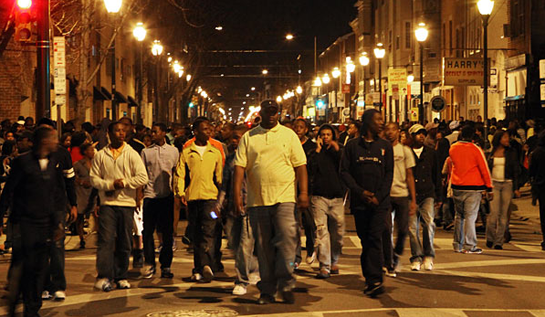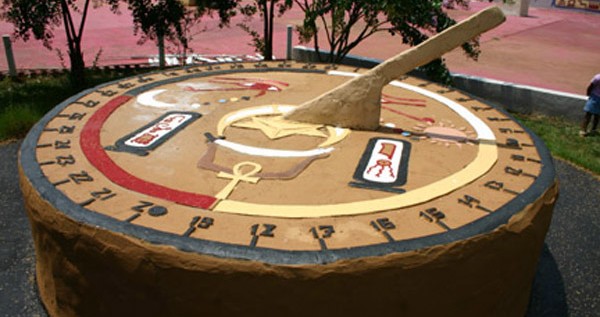Beyond The Flash Mobs

 It is hard to watch the news without being confronted with images and stories that disparage young black people again and again. From Philadelphia to Chicago to England, elected leaders and the media represent black youth as being engaged in uncontrollable behavior that necessitate legal interventions and arrests.
It is hard to watch the news without being confronted with images and stories that disparage young black people again and again. From Philadelphia to Chicago to England, elected leaders and the media represent black youth as being engaged in uncontrollable behavior that necessitate legal interventions and arrests.
In Philadelphia, black mayor Michael Nutter has called black youth engaged in flash mobs “knuckleheads,” saying they “have damaged their own race” and instituted new curfew laws. In Chicago, more police have been deployed in the downtown area to protect tourists, in particular, from flash mobs of young black people thought to be roaming the streets. In England, a fierce debate is underway about the causes of the recent uprisings with some suggesting that “black youth street culture” and a culture of poverty are to blame.
Of course, we should be concerned with the dangerous activity of any group of people when they threaten the lives and health of others. We all want young black people to make good, healthy, effective decisions that will strengthen their futures and provide them with a more fulfilling life. The truth, however, is that unlike the media and officials who are quick to respond to flash mobs, we should worry less about random group activity and more about the crises black youth face in the realms of employment, education, health, and justice.
For example, the unemployment rate for black teens this summer was almost 40 percent, with nearly 45 percent of black male teens out of work and 38 percent of black female teens without a job. In many urban cities the high school drop out rate for young black men is nearly 50 percent. A recent report from the CDC indicates that the HIV rate among young black gay and bisexual men increased nearly 50 percent between 2006 and 2009. Instead of encouraging the participation of young people, state legislatures are introducing voter identification laws that threaten the participation of young blacks in the political process. And there continues to be disproportional incarceration rates found in black communities with, for example, more than 10 percent of all black males between the ages of 25 and 29 in prison.
The current economic and social realities leave black youth with little prospects for a decent job or education: a situation that would leave any rational group of people hopeless, dejected, and alienated. But what is amazing is that unlike youth in England that took to the streets to voice their disgust with a system that has exacerbated the differences between those with and those without, black youth in 2008 took to the voting booth in record numbers to signal their hope that maybe this time elected officials would listen and take note of their need for better opportunities.
Indeed, more black youth voted in 2008 than any other racial/ethnic group of young people at any other time in history. In part their desire to vote was motivated by the chance to elect our first black president, but that desire was made real by the work various youth and community organizations engaged to get young people to the polls. The data show that while black youth were more likely than other youth to have been urged to vote by a political party, even higher numbers of black youth were mobilized to vote by community groups.
Fast forwarding to 2012, many of us ponder whether young black people will turn out to the polls again. The main concern should not be how they vote, but if they vote. Young black people need to be full participants in our political process, helping to determine the nation’s priorities and moral commitments. The only people who will consistently advocate a political agenda that advances the interests of black youth are black youth. Civil rights organizations, politicians, and even foundations have at times all taken up a black youth agenda but they are all quick to change their positions and abandon black youth when stories such as those surrounding flash mobs dominate the public agenda, producing their own moral panic.
Comprehensive programs like the Harlem Children’s Zone or the newly announced Young Men’s Initiative that seek to address the multiple issues slowing the progress of young blacks, are still needed. But if we do not promote the civic and political engagement of young black people they will forever be second-class citizens, the recipient of programs and never a part of those who determine policy.
As we move toward 2012 we should consider the incredible political power of young black Americans, the need to make their issues part of the political discourse of this election season, and the need to support and fund the organizations and groups in our communities who can help facilitate black youth engagement in 2012 and beyond. The future of the nation and the black community is dependent on the success of this generation. We must do our part to make sure their voices are heard!




Beyond The Flash Mobs http://t.co/ER0CAjCy